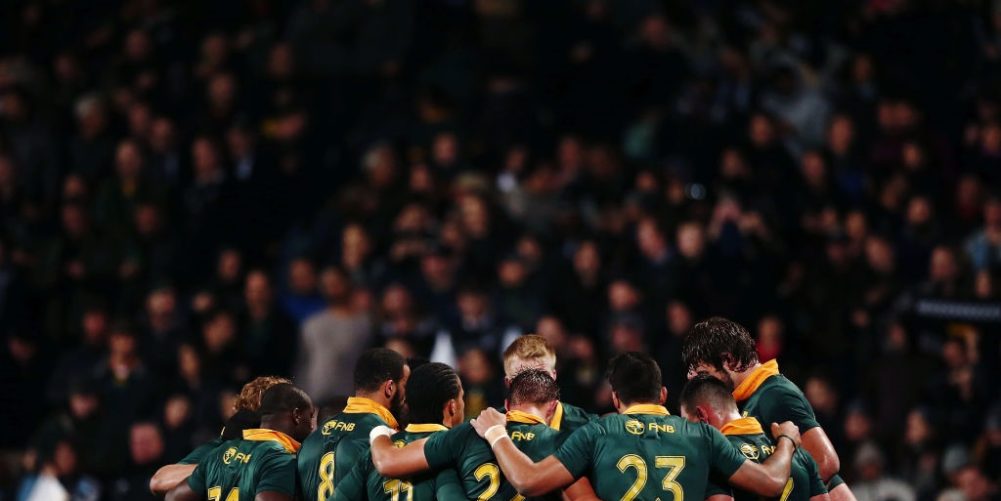(Photo: Getty Images)
By Nick Cain
With South African rugby on the road to the cliff-edge, the Rugby World Cup board have offered it an alternative route. Call it a sharp swerve onto salvation road because, potentially that is what they have done by recommending South Africa as the preferred hosts for the 2023 World Cup ahead of France and Ireland.
Here's the thing. The international end of the game looks in reasonably good shape if you are viewing it through the lens of the Lions or the Six Nations – even though the latter's current difficulties in attracting a title sponsor show the landscape could be changing.
However, what would change it catastrophically is if the game in South Africa, traditionally one of the great Rugby Union nations, was allowed to slip into terminal decline. International rugby's top tier is neither big enough nor competitive enough as it is – and that is why the RWC Board's decision to get behind South Africa is the right one at the right time.
While the sport appears to be in relatively good health in France and Ireland, the signs that South African rugby is on the slide have been clear since the 2015 World Cup, with the record 57-0 demolition by New Zealand in September an unwelcome signpost.
It was a timely reminder for the RWC board, and thankfully they did not allow the fact that the Springboks rallied later in the Southern Hemisphere Rugby Championship – even taking the All Blacks to the wire on home soil – to obscure their view of the steep decline of a nation that was once New Zealand's constant rival for rugby's heavyweight crown.
That status has been rapidly eroded by quota politics influencing South Africa selection. There is also a lack of love for the sport among some sections of the South African black political elite despite Nelson Mandela's championing of rugby during the 1995 World Cup as a vehicle to build a “rainbow nation”.
Add to that a continuing player exodus to Europe and Japan – spurred mainly by superior earning power overseas – and it is not hard to see why the South African Goliath is on its knees.
No wonder that the recommendation announced earlier this week saw Jurie Roux, SA Rugby's chief executive, say that hosting the event two years after the 2021 Lions tour could herald a South African resurrection.
Roux said: “We trust now that the World Rugby Council will follow through by voting to confirm what the experts have identified: that a South African World Cup in 2023 is the best result for rugby.”
Roux's exhortation to World Rugby to stand firm behind the recommendation is understandable given the disgraceful horse-trading – usually over fixtures and favours – which has been the backdrop to far too many significant global rugby decisions over the last 30 years.
The good news for Roux, and the global game, is that World Rugby have moved forward by introducing a transparent bid process in which a team of internal and independent experts examined the bids in great detail.
This involved a scoring system based on key criteria such as: venues and infrastructure; commercial success; operational excellence; inspirational vision; and political and financial stability. It also stressed the importance of government and private sector guarantees. In the final analysis the fanfare for the Irish bid proved to be overblown, with South Africa emerging “as a clear leader” according to World Rugby chairman Bill Beaumont.
South Africa finished with a 78.97 per cent ranking, compared to France at 75.88 and Ireland at 72.25.
South Africa came out on top in three of the main criteria with its proposed host cities and venues, many of which had been used and approved during the country's 2010 football World Cup success helping their cause. They also impressed in terms of infrastructure and operational excellence.
France was also judged best in two criteria – financial success and inspirational vision. However, Ireland failed to achieved the highest ranking for any criteria, with concerns over venues, infrastructure and transport.
France and Ireland refused to accept defeat, saying that they still hoped to secure the nomination when the World Rugby Council votes on November 15 in London. To do so they need a simple majority of the 39 votes cast.
The candidate nations do not have a vote, but there are three each for the rest of the Six Nations and SANZAAR countries, England, Italy, Scotland, Wales, Argentina, Australia and New Zealand (21 votes). Each of Japan and the six regional associations – Oceania, Sudamerica, Americas North, Europe, Africa and Asia – have two votes (14 votes), while Canada, Georgia, Romania and the USA have one vote each (four votes). The ballot will be overseen by independent auditors.
There has been dissent already with French Federation president Bernard Laporte raging that the RWC Board's evaluation was “nonsense”, and reflected “incompetence”, including criticising it for France being given the same security ranking as South Africa.
France last hosted a World Cup in 2007, and Paris is also hosting the Olympics in 2024, so the French cup is pretty full when it comes to major sporting events. By contrast South Africa has not hosted a Rugby World Cup since 1995, and it will be 13 years since they hosted its football equivalent by 2023.
There is no doubt that each bid has its merits, but World Rugby have staked their reputation and credibility on a relatively transparent bid process which has recommended South Africa. Should the World Rugby Council not vote in favour of South Africa the unpalatable reality will be that its authority has been torpedoed by its own members, making the international governance of this game a laughing stock.


























